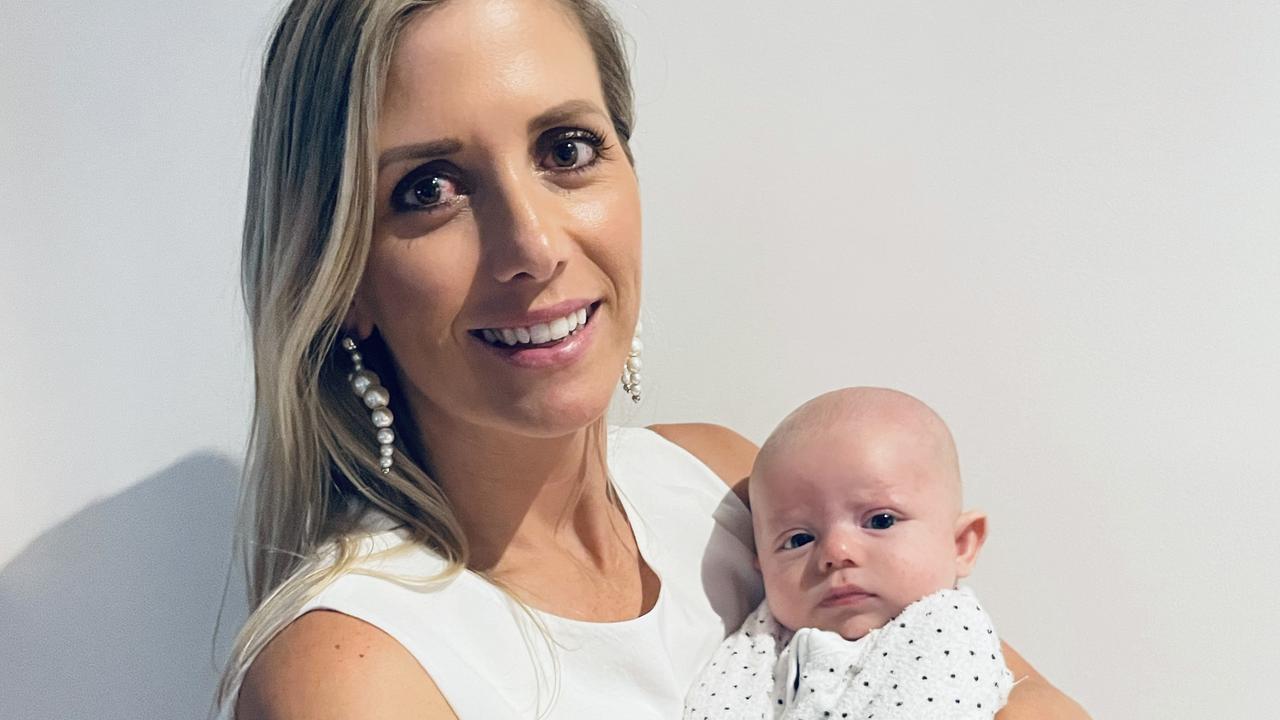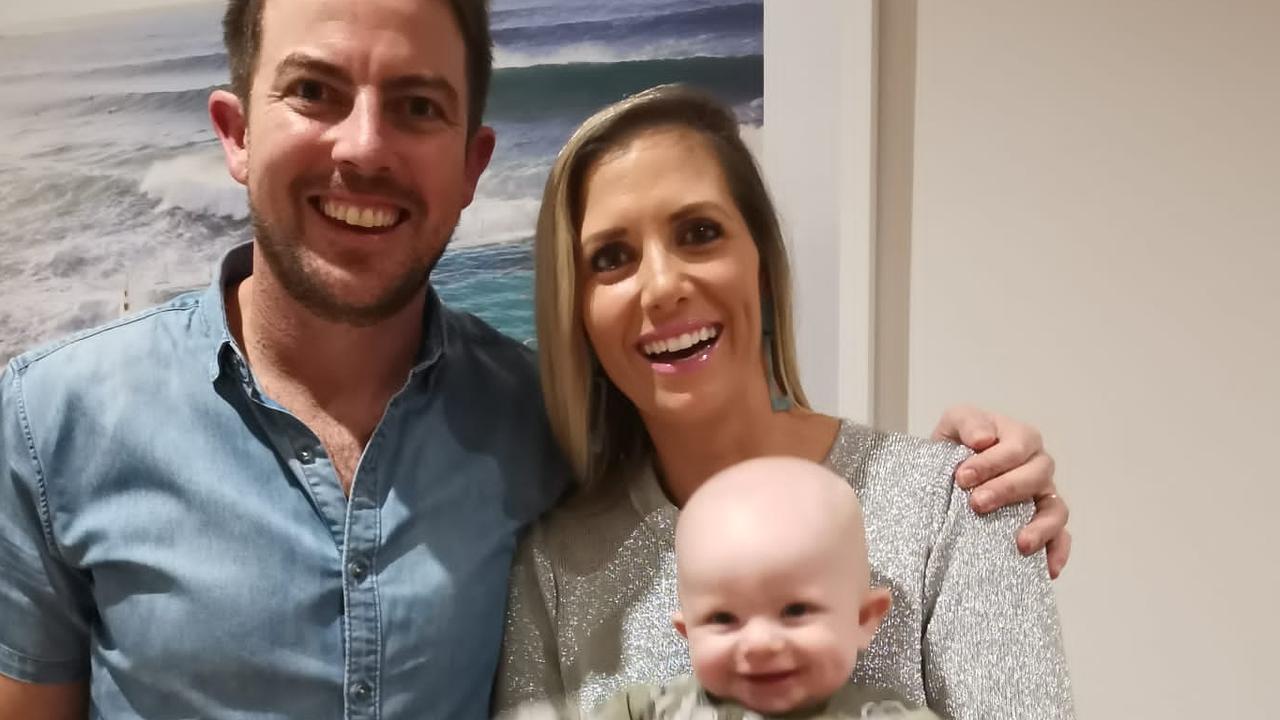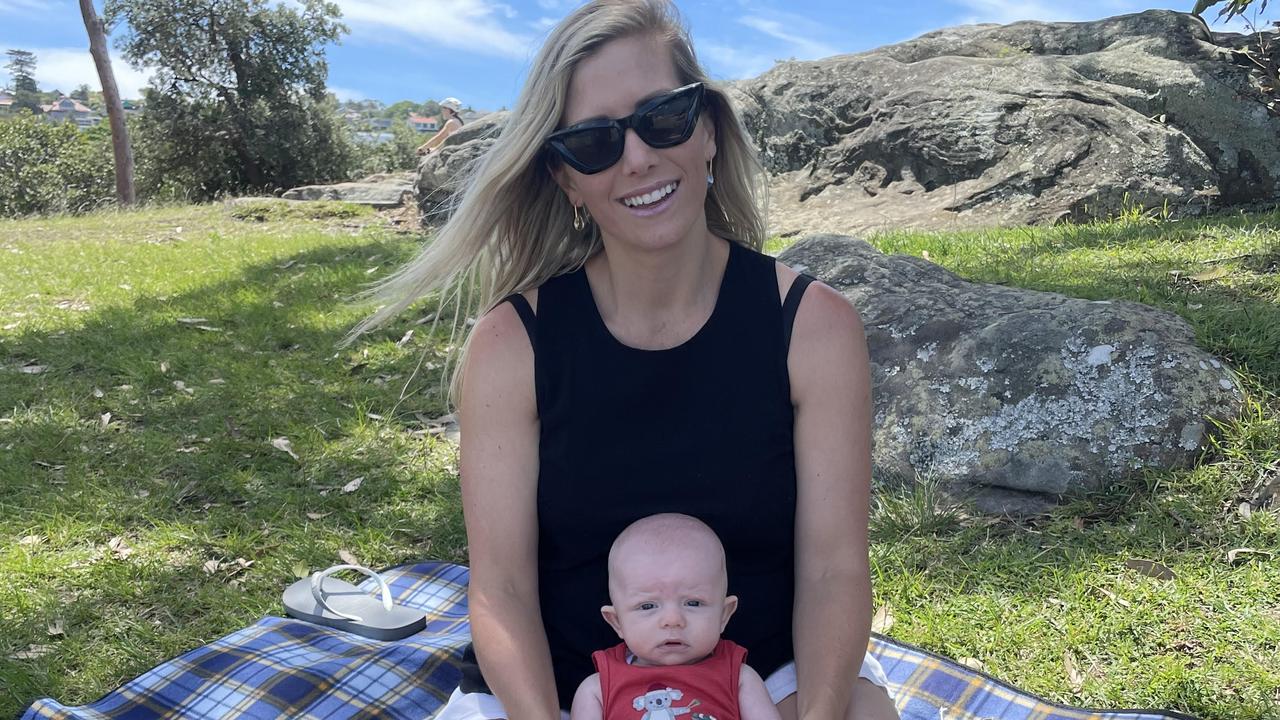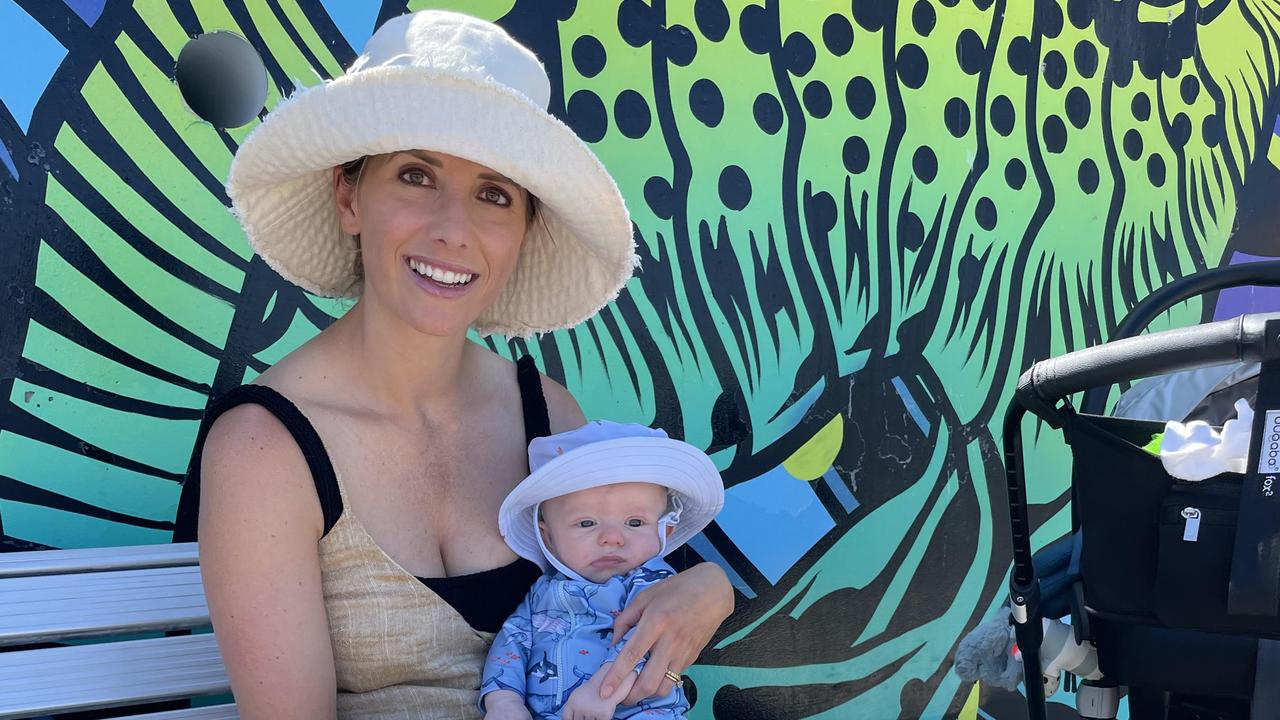‘Abhorrent’: Why I’m turning down $14,000 free paid parental leave cash
A Sydney mum has explained why she’s turning down nearly $14,000 in free government cash because it will leave her worse-off in the long run.
Megan Ormsby finds it “abhorrent” that she has to “sacrifice” spending time with her baby to avoid financial fallout in the future.
The 36-year-old had her first baby six months ago and has made the difficult decision to return to work early rather than spending a full year off with her baby boy.
She said she won’t even bother taking up the government’s 18 week paid parental leave and the fact superannuation isn’t paid on the scheme is a huge influence on avoiding it. This means she is voluntarily turning down $13,905.90 before tax because it will ultimately leave her worse-off financially.
“One of the reasons I’m returning to work earlier is because of the impact on my super. I work for a big tech company in Sydney and was paid five months mat leave – however, their super contributions have been a fraction of what they should normally be and since the paid leave has ended, there are no additional contributions,” she told news.com.au.
“I find it abhorrent that the government and the private sector acknowledge the importance of taking time off to have a baby and raise a child by paying parental leave and keeping the job open, yet significantly impact the financial future of the primary caregiver.”

The Sydney mum is one of millions of Aussies caught out by the shocking super gap between men and women with a whopping 28 per cent difference.
Women retire with a median superannuation balance of $146,900, compared to men who walk away with $204,107 at retirement when aged 60 to 64 years, recent data from KPMG found.
Yet simple measures could help women like Ms Ormsby spend more time at home with their babies and ensure they have a secure financial future.
The Association of Superannuation Funds of Australia (ASFA) economic modelling showed a large portion of the inequity that arises when having a baby could be neutralised for a woman earning $80,000 and eliminated for a woman earning $60,000 via two measures.
The first is superannuation being guaranteed on paid parental leave, alongside a super baby bonus of $5000 for each child a woman gives birth to or adopts.
The huge money gap between women and men when they retire is appalling – that’s why news.com.au believes the next Australian government should commit to paying superannuation while mums are on paid parental leave.
Helena Gibson, ASFA senior policy adviser, has called for the $5000 baby bonus and super on paid parental leave to be introduced to reduce the super gender gap.
“This means the 300,000 women in Australia that give birth each year will no longer be behind the eight ball with their superannuation because they have chosen to have a baby and take a year out of the workforce,” she said.
“This is the first step to closing the retirement savings gap and needs to be supported by measures that support eliminating the gender pay gap and providing gender-neutral flexible work arrangements.”

For Ms Ormsby, her return to work signals “making sacrifices at the expense of my baby’s first year”.
“I am making sacrifices there to ensure I am not in a worse position than if I took the full 12 months,” she said.
“I think it’s a shame that myself and many others have to make these sacrifices at the sake of their child.
“We need to be conscious about our finances and financial future, and it’s not the same way for men or secondary carers who don’t have these types of concerns, as they are not taking the same amount of time off to raise their child.
“I don’t understand why females need to be basically punished financially (for) taking time off to raise their child.”
Last month, Liberal Minister for Women’s Economic Security Jane Hume confirmed the party would not adopt a policy to pay superannuation on the paid parental leave scheme, despite it being recommended by Treasury’s retirement income review.
Yet the Callaghan Review estimated adding superannuation to the government-funded scheme would only cost taxpayers $200 million a year, less than one per cent of the total budget.
The Labor Party is also stalling on making a decision on whether to adopt the policy this election, despite campaigning on it back in 2019.
Ms Ormsby said it was “ridiculous” that the Morrison government had rejected the recommendation considering the small impact on the budget.
“It’s a big difference to the individual who has taken time off to have a baby, but a small difference in the government’s bottom line and budget sheet – it’s a blip in the ocean – yet they chose not to do it,” she said.
“I think this needs to be talked about more widely and there needs to be some reform on this. “Again, it’s always females that are copping it at the end of the day and I think there needs to be a serious discussion and reform and if not, why not?”
Last year, KPMG called for primary carers of children – which is usually women – to receive a rebate for up to five years after time spent out of the workforce.
It means the primary carer would be compensated for superannuation “lost” while at home caring for children, it said.
The aim would be to allow women to catch up on half of the employer’s mandatory contributions had they not taken time out of the workforce and also encourage women to return to work, the report said.

It also called for the federal government to make top up contributions into the superannuation accounts of largely women, who have a child of preschool age, to help lower-income earners make higher contributions to their super.
It suggested an annual $500 or $1000 top up amount with the financial implications to be modelled by Treasury.

Ms Ormsby wants to see the next Australian government go even further and make it a “widespread mandate” that superannuation is paid when parental leave is taken.
She added that women are so busy surviving when they first have a child that they don’t see superannuation as a crucial issue and it’s also one more “battle” they don’t need.
“Super ticks away and you don’t think about it as your company is making contributions on your behalf and it sits there in the background and until your contributions are taken away from you, you’re not really thinking about it,” she said.
“I am in a few mum’s groups and the majority don’t know about this and then realise and it’s too late.
“When your baby is born you are focused on just getting through the months unpaid, so the super side of things is a battle you are not going to fight when you are just trying to make ends meet.”






